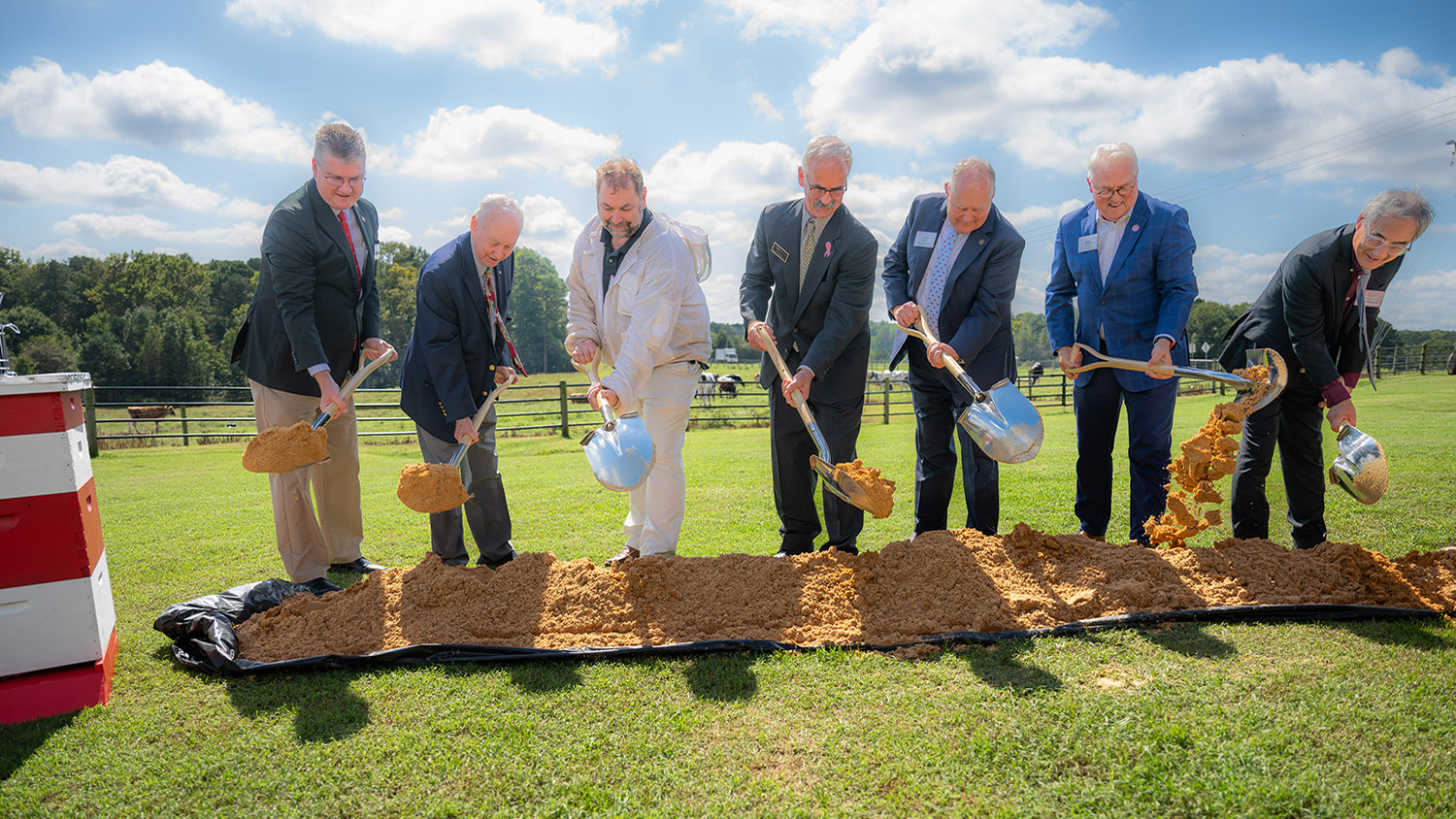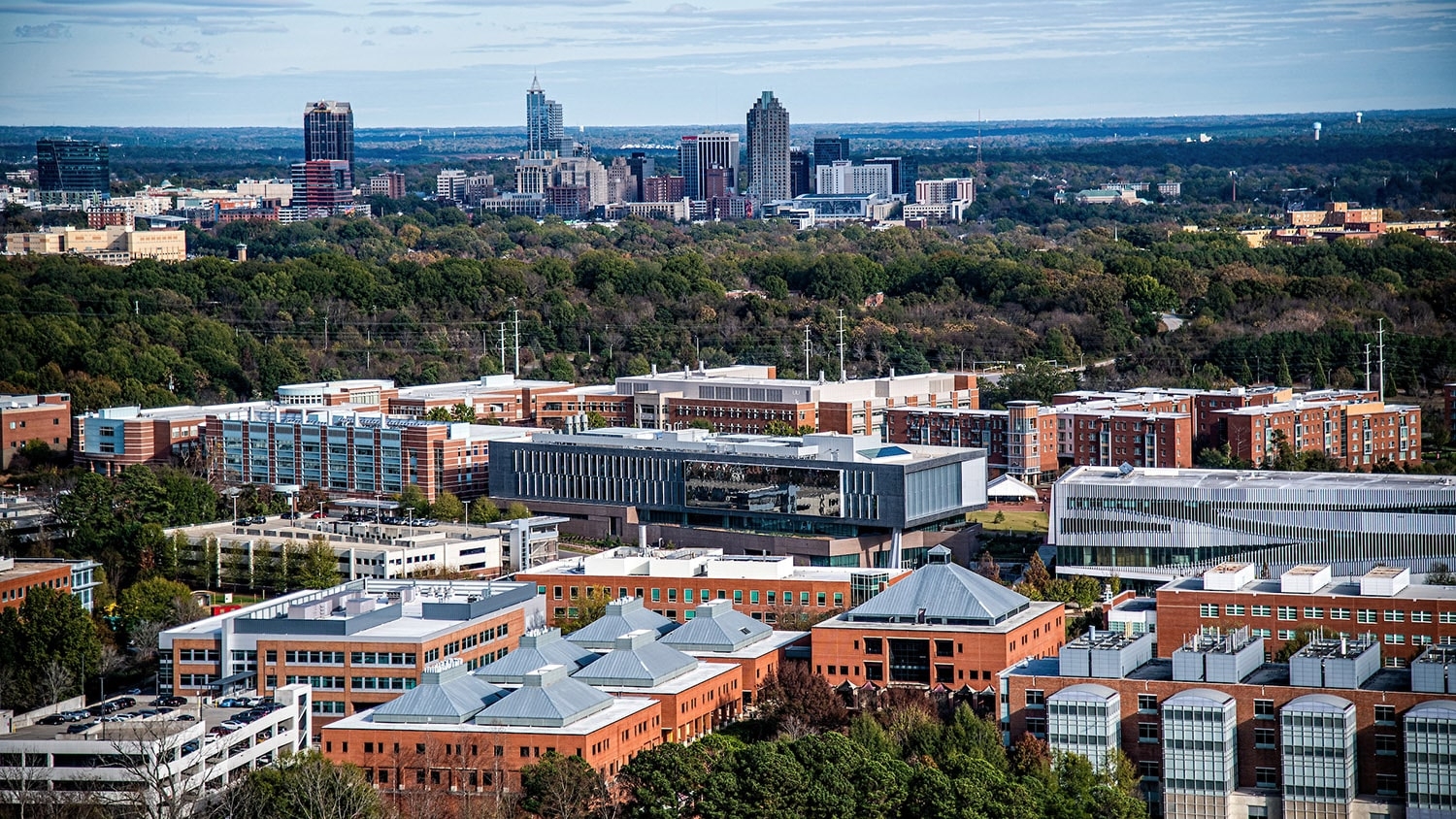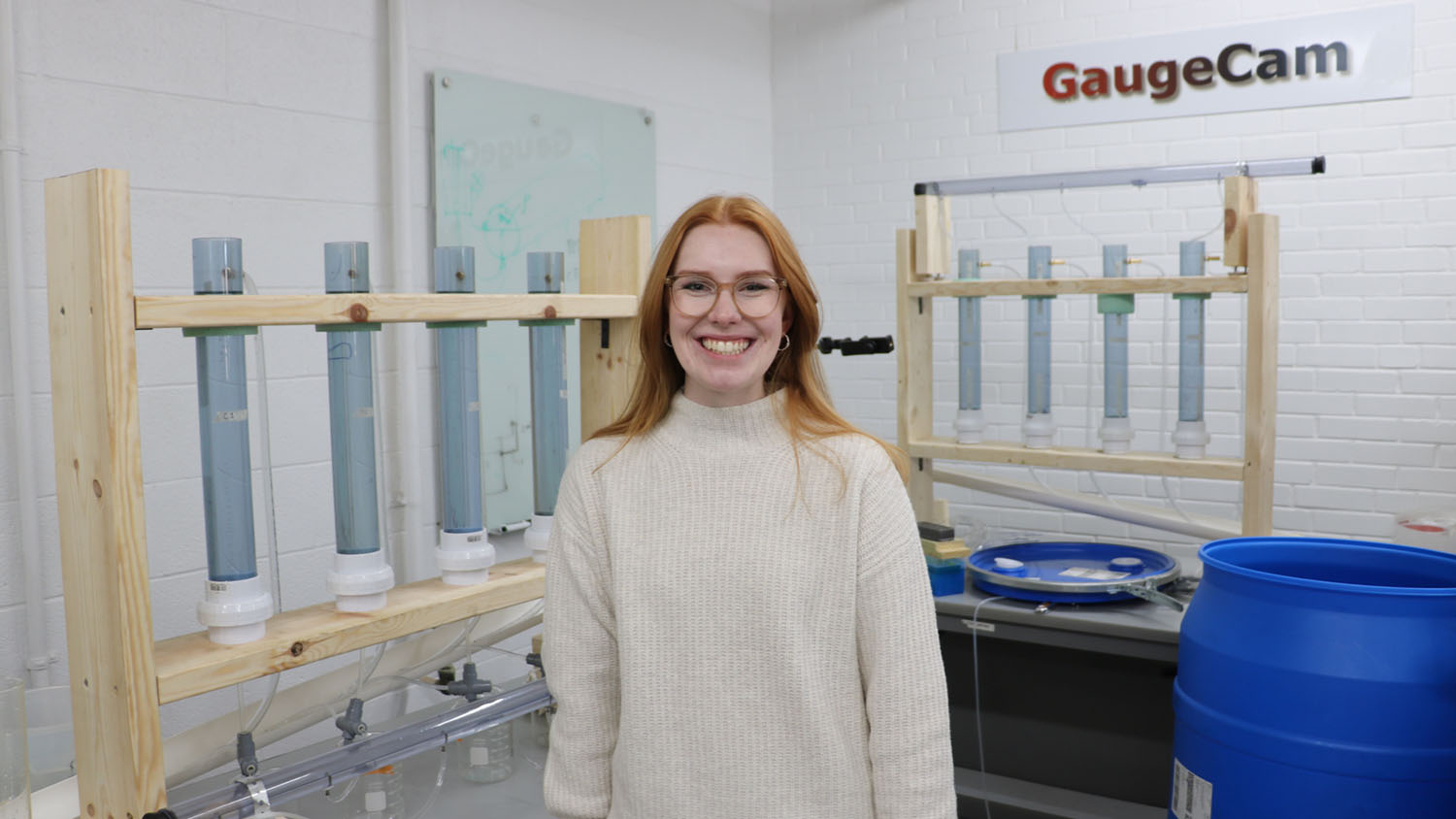NC State Breaks Ground on New Apiculture Research Facility

The future for bees — and the food supply — is brighter with the recent groundbreaking of NC State University’s new 5,000-square-foot apiculture research facility. With bees’ health and well-being under threat from a myriad of factors, ranging from mites and disease to climate and weather, it couldn’t come at a better time.
University officials, state legislators, members of the North Carolina State Beekeepers Association (NCSBA) and bee enthusiasts from the greater Raleigh area and beyond gathered on Oct. 3 at NC State’s Lake Wheeler Road Field Laboratory to celebrate the milestone.
“This is a proud day for me and all of us associated with NC State and the College of Agriculture and Life Sciences,” said NC State Chancellor Randy Woodson. “Here, our faculty and students will advance research on colony health and productivity and use NC State Extension to get that information out to the farmers and beekeepers that need it.”
North Carolina agriculture produces more than 90 commodities, many of which depend on bees for their pollination and reproductive health.
“Bees account for over $20 billion per year in added yield and marketability for most fruits, vegetables and nut crops, including apples, blueberries and cucumbers,” Woodson said.

Nearly a decade in the making, the apiculture research facility is the result of a partnership between the State Beekeepers Association, the North Carolina General Assembly, NC State University and CALS. State Sen. Brent Jackson recalled early discussions about needing to upgrade the university’s apiculture facility and the years-long effort to allocate and raise funds, including $4 million in funding from the state for construction of the building as well as fundraising by the NCSBA for an endowed professorship.
The facility, which will be located off Lake Wheeler Road, will greet visitors with a Piedmont prairie habitat with pollinator plants along the exterior of the building to attract and support wild bees as well as managed honey bees. Inside, the space will include a conference center and offices as well as a variety of research labs with glass-walled hives for observation, state-of-the-art equipment for genetics testing and a screened-in porch for public beekeeping demonstrations meant to keep onlookers protected from stings.
For Jackson, a watermelon farmer who understands firsthand the integral role bees play in pollination and yields, the effort to see the new facility built is personal.
“Without bees there would be no watermelons here because our native hives are pretty much gone,” he told the crowd. “That is why it is so critical to have this building to be able to have the research and to have research coming out with results that we can put into the fields.”
CALS Dean Garey Fox said cutting-edge apiculture research is part of the college’s vision to focus on future proofing the food supply for the state of North Carolina. Fox praised the leadership of David Tarpy, a University Faculty Scholar in the Department of Applied Ecology and Extension apiculturist who leads the bee research program at NC State. Fox pointed out that CALS and NC State Extension over the last 20 years have received $16 million in grant funding for apiculture research, had articles appear in more than 150 peer-reviewed publications, and hosted a robust series of Extension programs focused on beekeeping as well as more than 11,000 related undergraduate and graduate student credit hours..
“That is high impact research, teaching and Extension,” said Fox. “And when you take those high impact programs and put them under one roof, it is amazing the innovation that can occur. That’s the exciting part about this building and this program.”
As an early proponent for the construction of a new facility dedicated to bee research, the NCSBA provided an initial gift to establish the NCSBA Faculty Award in Apiculture and has for the last two years focused on fundraising in conjunction with NC State to establish an endowed distinguished professorship in apiculture. To date, the campaign has raised more than $745,000 of its $1 million goal.
“This will be the first and only university endowment specifically for apiculture research in the United States,” said NCSBA President Rick Coor. “With support from the university, the general assembly and the beekeeping community, the effort to fund the endowment has enjoyed remarkable success.”
Coor said the fund is “literally growing by the day” and that the association is confident it will reach its fundraising goal “well before the construction of the lab is completed.”
Charles Heatherly, former NCSBA president and chair of the association’s legislative committee, watched with excitement as Coor, along with Fox, Woodson and others posed for the customary groundbreaking photos.
“We’re extremely proud,” Heatherly said. “We just want to see a first-class facility built and staffed adequately.”
NC State’s apiculture research and Extension work has come to prominence thanks in large part to Tarpy’s extensive study of queen behavior and honey bee colony health. The prospect of having a dedicated facility for his research is exciting, Tarpy said. The building will allow for observation hives and behavioral observation research, more studies regarding reproductive health, and artificial insemination to support the breeding of different genetic types of bees.
Tarpy also hopes to use the dedicated space to focus more on the viruses transmitted to bees from Varroa mites.
“Varroa mites don’t kill our bees,” he said. “It’s the viruses they vector that kill our bees. So we’ve actually been looking at the triangle of host, vector and pathogens. We’d like to break the cycle so we can minimize the impact of the mites by mitigating the viruses.”
It’s monumental to have a facility to pursue that kind of research and an endowment to create a distinguished professorship that ensures the continuation of his research into the future, Tarpy said.
“It’s humbling,” he said. “I’m so grateful and honored to have the support of the beekeepers. It really means everything.”
This post was originally published in College of Agriculture and Life Sciences News.


